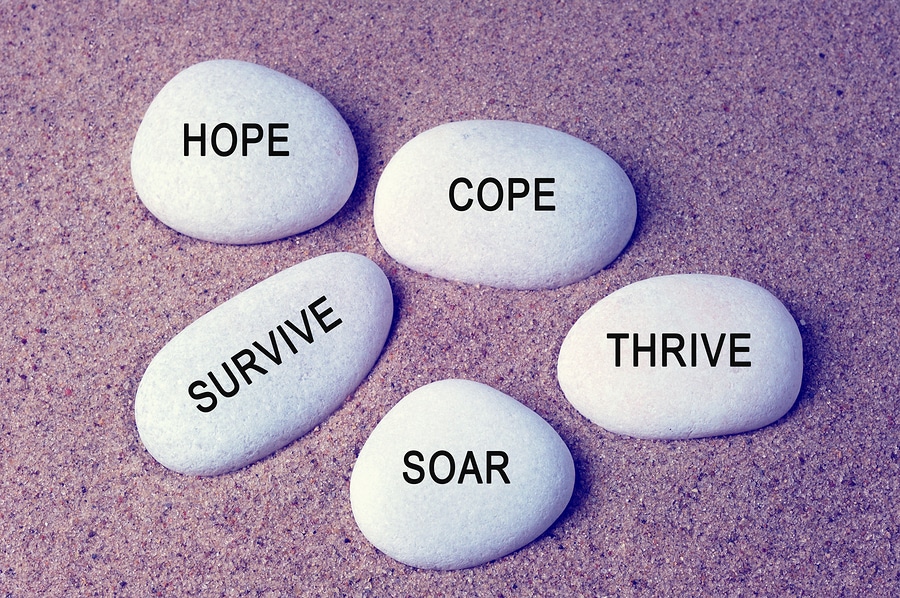Note: This post contains affiliate links, when you purchase a product or service through one of these links we may earn a commission on that sale.
Depression is a serious mental health disorder that affects millions of people around the world. It can cause feelings of sadness, hopelessness, and worthlessness that can be difficult to overcome. Coping with depression can be a challenging task, but there are several steps you can take to manage your symptoms and improve your overall mental health. In this article, we will explore some of the most effective ways to cope with depression.
Understand Your Condition
The first step in coping with depression is to understand your condition. Depression is a medical condition that requires treatment, and it is not a sign of weakness or personal failure. It is caused by a combination of genetic, environmental, and lifestyle factors, and it can be treated with therapy, medication, or a combination of both. Educate yourself about depression by reading books, articles, and talking to healthcare professionals. Understanding your condition will help you take control of your symptoms and find the best treatment options for you.
Seek Professional Help
If you are experiencing depression, it is important to seek professional help. Depression can be a complex and serious condition, and it is important to work with a mental health professional who can provide you with the support and guidance you need to manage your symptoms. A mental health professional can help you develop coping strategies, identify triggers, and create a treatment plan that works for you. There are several types of mental health professionals, including psychiatrists, psychologists, and licensed therapists. Talk to your doctor or a trusted friend to find a mental health professional that is right for you.
Develop Healthy Habits
Depression can make it difficult to take care of yourself, but it is important to develop healthy habits to manage your symptoms. Exercise is one of the most effective ways to manage depression. Regular exercise can help boost your mood, reduce stress, and improve your overall mental health. Try to incorporate at least 30 minutes of exercise into your daily routine, such as walking, jogging, or cycling.
Eating a healthy diet is also important for managing depression. A diet rich in fruits, vegetables, whole grains, and lean proteins can help improve your mood and energy levels. Avoid processed foods, sugary drinks, and alcohol, which can worsen depression symptoms.
Getting enough sleep is another key factor in managing depression. Aim for at least seven to eight hours of sleep each night, and try to establish a regular sleep routine. Avoid caffeine and electronics before bedtime, as they can interfere with your sleep.
Engage in Positive Activities
Engaging in positive activities can help you cope with depression and improve your overall mental health. Find activities that you enjoy, such as reading, writing, painting, or listening to music. These activities can help you relax, reduce stress, and improve your mood. You may also want to consider volunteering or participating in social activities, such as joining a club or attending a support group. These activities can help you feel connected to others and reduce feelings of isolation.
Practice Mindfulness
Mindfulness is a technique that involves focusing on the present moment and accepting your thoughts and feelings without judgment. Mindfulness can be an effective way to manage depression, as it can help you become more aware of your thoughts and feelings, and develop a more positive outlook on life. There are several ways to practice mindfulness, including meditation, deep breathing, and yoga.
Challenge Negative Thoughts
Depression can cause negative thinking patterns, such as self-criticism, self-doubt, and hopelessness. Challenging these negative thoughts is an important step in managing depression. When you notice negative thoughts, ask yourself if they are based on facts or assumptions. Try to reframe negative thoughts into more positive or neutral statements. For example, instead of thinking “I’m a failure,” try thinking “I’m facing a challenge, and I can learn from it.”
On a concluding note, we would like to reiterate that coping with depression can be a challenging and complex journey, but there are effective ways to manage symptoms and improve overall well-being. Seeking professional help, such as therapy and medication, can provide a solid foundation for recovery. Additionally, practicing self-care, such as getting enough sleep, exercise, and healthy nutrition, can help manage symptoms and promote healing. Engaging in social support, such as spending time with loved ones or joining support groups, can also be beneficial. Finally, learning to identify and challenge negative thought patterns can help shift one’s perspective and promote a more positive outlook on life. With these tools and strategies, it is possible to cope with depression and lead a fulfilling life.


